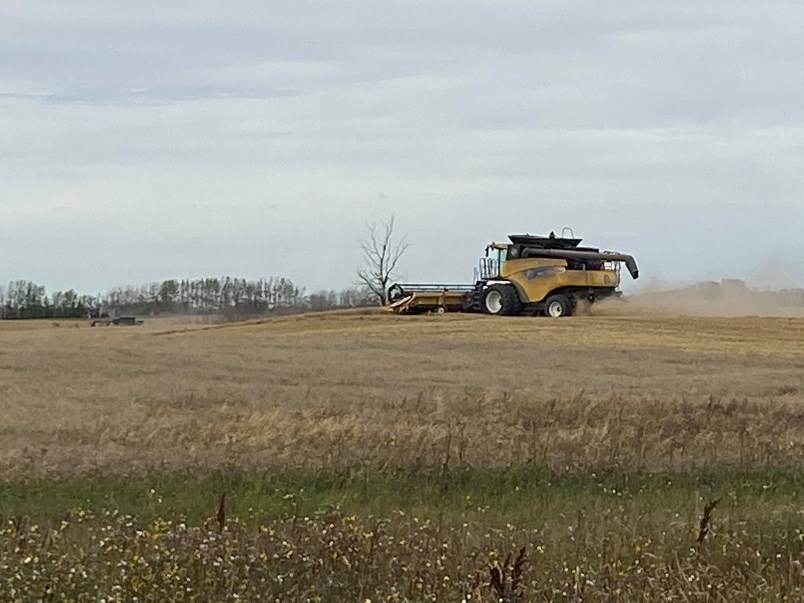The Government of Saskatchewan is opening new in key markets to increase exports, attract more investment to the province, and strengthen relationships with international partners and customers.
“Our government has made it a priority to increase our exports and enhance trade and these new offices will be an important tool to helping achieve those goals,” Premier Scott Moe said in a release.�� “Recent trade actions in key markets have made it more important than ever to ensure we have on the ground presence to tell our Saskatchewan story.”
In 2020-21, the Ministry of Trade and Export Development will open offices in Japan, India and Singapore.
“It’s fantastic news,” Mike Popowich owner at TA Foods in Yorkton.
Popowich told Yorkton This Week Thursday the concept of trade missions is already a proven way to build markets.
“There is a similar office in Shanghai already with Richard Choi, who is the Chief Representative of the Sask Trade & Investment Office China,” he said.��“Richard and the office there have been key in many Saskatchewan businesses vetting customers, organizing trade meetings, and generally acquiring trade and export related information.��
“I’m a Board Director and a Committee Chair on the Saskatchewan Trade and Export Partnership (STEP ), and other board members include Deputy Minister of Trade & Export Kent Campbell, Deputy Minister Agriculture Rick Burton, and Deputy Minister Energy and Resources Laurie Pushor.��
“My feeling, through Board discussions and TA Foods historical usage of these faculties, is that these new proposed offices would be just as useful in other Countries as the Shanghai/China office.�� They could be a big help to companies similar to mine in the future and it is a positive development for exporters to Asia.”
Terry Tyson, manager at Grain Millers in Yorkton also sees the move as positive.
“We would view this as an unmitigated positive,” he told Yorkton This Week.��“Having people on the ground to open up markets, facilitate negotiations, clarify the various regulatory and phytosanitary requirements, etc. has the potential to greatly ease the burden associated with exporting products to new customers and new countries.”
Tyson said having someone in the markets can help Canadian exporters navigate through rules and regulations more easily.
“In our experience, there can be a lot of uncertainty when doing so – regulations can be opaque or contradictory and customer demands can be highly variable, while language barriers tend to exacerbate things,” he said. “The value of boots on the ground with contacts and experience and the ability to have or arrange face-to-face discussions can’t be overstated in clearing early hurdles that can often arise, thus paving the way for the continuation and growth of those export opportunities.”
The Western Canadian Wheat Growers were also quick to congratulate the Saskatchewan government for opening three new trade offices in Japan, India and Singapore, supplementing the current offices in Shanghai, China and Washington DC.
“It is encouraging to see that the Saskatchewan government is taking international trade seriously by opening offices in key markets around the world. Numerous countries around the world have been limiting access to our grain, oilseeds and pulse markets and part of the solution is to have boots on the ground to build relationships and solve little problems before they become big ones,” stated��WCWG President Gunter Jochum in an organization release.
“I’m pleased that the Saskatchewan government has taken this proactive step to work directly with our current and potential trade partners in an effort to support Saskatchewan agriculture,” said Daryl Fransoo, Saskatchewan Director.
In the government release announcing the offices it was noted they will allow the province to have officials on the ground with a focus on:
•��diversifying markets;
•��facilitating connections between Saskatchewan businesses and international buyers;
•��increasing foreign direct investment (FDI) in Saskatchewan;
•��establishing ongoing relationships and business partnerships; and
• providing exporters an understanding of the business environment, rules and regulations in these markets.��
Saskatchewan exports approximately 67 per cent of the products it produces.��Total exports in 2018 were valued at approximately $31 billion.��The province’s top exports include oil, potash, agricultural products and uranium.
��
��




